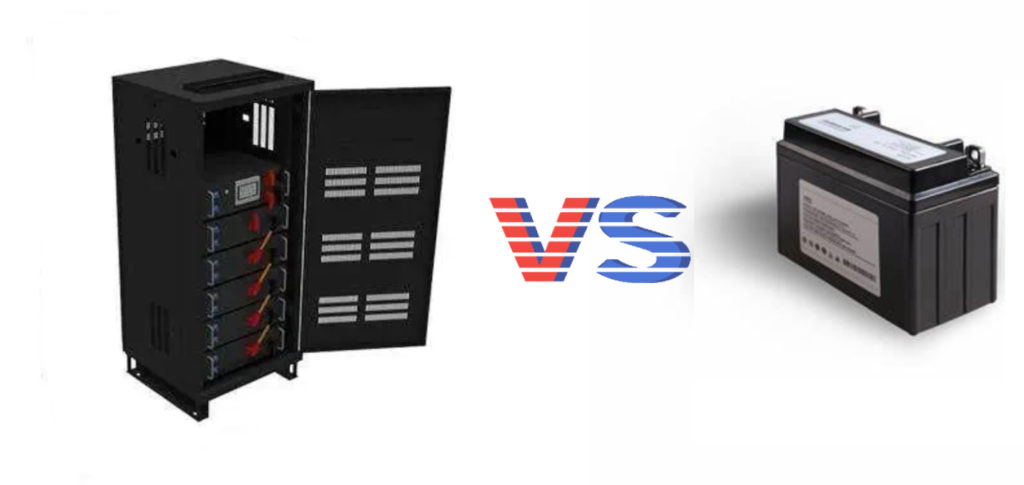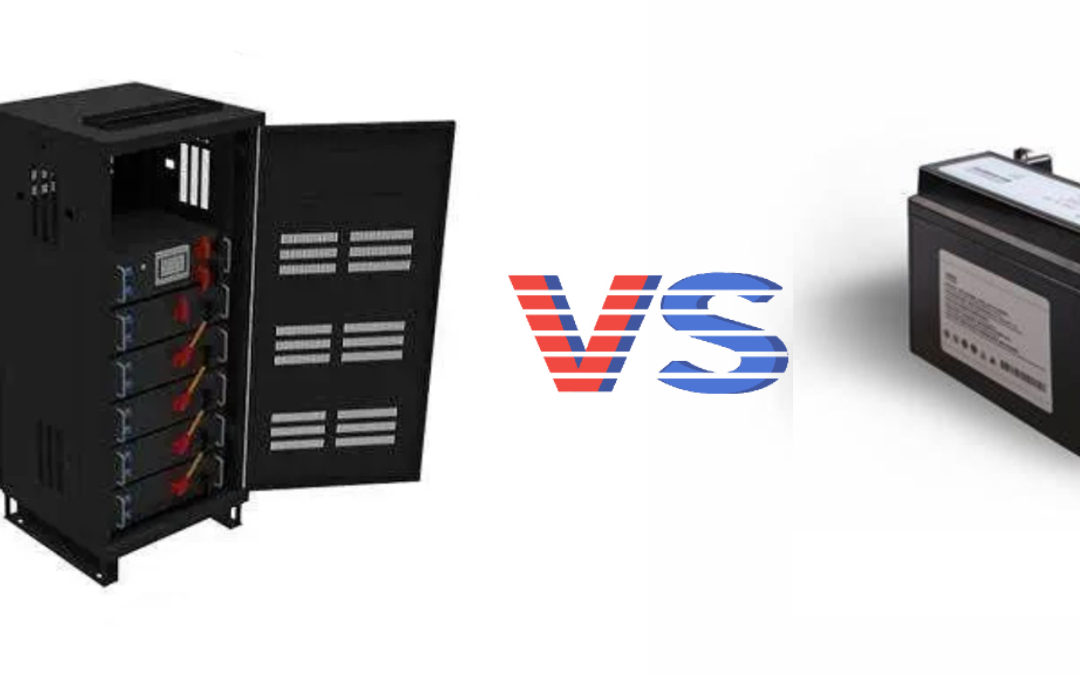Selecting the right battery for your Uninterruptible Power Supply (UPS) system involves considering various factors. Two prominent contenders are the traditional Lead-Acid batteries and the more contemporary Lithium-Ion batteries. In this blog post, we’ll delve into a comprehensive comparison, including key considerations like energy density, lifecycle, efficiency, maintenance, and additional factors such as price and size.

1. Technology Overview:
Lead-Acid Battery:
- Established technology with a proven track record.
- Uses lead dioxide, sponge lead, and sulfuric acid in its construction.
Lithium-Ion Battery:
- Advanced technology gaining popularity.
- Utilizes lithium-based materials for cathodes and graphite for anodes.
2. Energy Density:
Lead-Acid Battery:
- Lower energy density, resulting in larger and heavier batteries.
Lithium-Ion Battery:
- Higher energy density, leading to a more compact and lightweight design.
3. Lifecycle and Durability:
Lead-Acid Battery:
- Typically offers a lower cycle life, requiring more frequent replacements.
Lithium-Ion Battery:
- Boasts a longer cycle life, providing increased durability over time.
4. Efficiency:
Lead-Acid Battery:
- May experience energy losses during charge and discharge cycles, resulting in lower overall efficiency.
Lithium-Ion Battery:
- Higher efficiency with minimal energy losses during charging and discharging.
5. Maintenance:
Lead-Acid Battery:
- Regular maintenance required, including topping up with distilled water and monitoring electrolyte levels.
Lithium-Ion Battery:
- Virtually maintenance-free, requiring minimal attention throughout its lifespan.
6. Price:
Lead-Acid Battery:
- Generally more cost-effective upfront, making them a budget-friendly option.
Lithium-Ion Battery:
- Higher initial investment, but the decreasing cost of lithium-ion technology may narrow the price gap over time.
7. Weight and Size:
Lead-Acid Battery:
- Bulkier and heavier, occupying more space in UPS systems.
Lithium-Ion Battery:
- Compact and lightweight, ideal for applications where space and weight are critical considerations.
A Comparative Analysis
| Feature | Lead-Acid | Lithium-Ion |
|---|---|---|
| Cost | Inexpensive | Expensive |
| Lifespan | Long (2-3 years) | Longer (5-10 years or more) |
| Weight | Heavy | Light |
| Bulk | Bulky | Compact |
| Energy Storage | Limited | High |
| Discharge Rate | Slow | Fast |
| Maintenance | Required | Minimal |
| Environmental Impact | High | Low |
In essence, Lead-Acid batteries offer a budget-friendly and proven solution, suitable for applications where upfront costs are a critical consideration. On the other hand, Lithium-Ion batteries bring advanced features, longer lifespans, higher efficiency, and a compact design, making them ideal for those prioritizing performance and are willing to invest in a more modern technology. The decision ultimately hinges on specific needs, budget constraints, and the importance of factors such as space, weight, and long-term efficiency in your UPS system.
